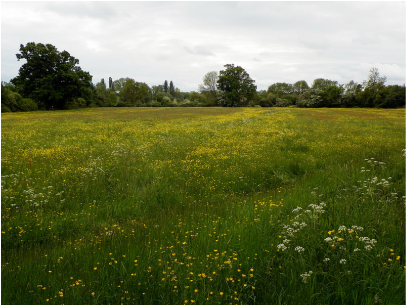|
It’s not that we don’t love a good story; we love. It’s not that we don’t know the importance of reading; we know. It’s not that we don’t have access to classic books; we have. But let’s be perfectly honest. What we don’t always have is the time to delve into a novel of literary merit. I tout myself as an avid reader, but frankly, if I wasn’t a high school English teacher, would I be picking up Charles Dickens? Probably not. That’s a shame, really, because we learn from example in everything we do, and as writers, there’s no better learning experience than reading a work of fine literature that has stood the test of time. There it is again—TIME.
We read what is presented to us in small bursts because we don’t have time to become engrossed and committed to larger works. We scroll through posts and quotes on Twitter; we click on articles and updates on Facebook; we tap on the abbreviated sentences of texts. We are readers, indeed, but the brevity of today’s analysis is the antithesis of Great Expectations. As writers, we need to be actively engaged with a text, and the activity is lost when not exposed to exemplary writing. So, do we simply pick up any book and force ourselves to plow through a chapter each night? No, “any book” is not the answer because we need quality. Therefore, I highly suggest subscribing to the Library of America’s “Story of the Week.". Each week I open my email and think these links to be treasured gems. And they are. I might not get to it that day, but at some point in the next few days, I will read that piece, or the author’s name might inspire me to use the search box to check a different title by the same writer. In any case, it’s there—not a 400+ page novel, but not a 400 character post, either. Today’s story is written by Clark Ashton Smith, and it’s called “Genius Loci.” I had never heard of Clark Ashton Smith, but in the first paragraph I was inspired by his description of a meadow. There is nothing but a sedgy meadow, surrounded on three sides by slopes of yellow pine. A dreary little stream flows in from the open end, to lose itself in a cul-de-sac of cat-tails and boggy ground. The stream, running slowly and more slowly, forms a stagnant pool of some extent, from which several sickly-looking alders seem to fling themselves backward, as if unwilling to approach it. A dead willow leans above the pool, tangling its wan, skeleton-like reflection with the green scum that mottles the water. “...tangling its wan, skeleton-like reflection with the green scum that mottles the water.” I love that imagery! This paragraph does not set the same stage as a meadow filled with flowers and green grasses, the kind of scene I think of when I hear the word “meadow.” This type of quality reading has inspired me to go back to my own writing and pick out what I thought were descriptive paragraphs. How can I make them better? Do I have the best verbs, like Smith’s alders that “fling” or the willow that “leans..., tangling”? Have I set a tone with my description, like the gloominess that settles into Smith’s scene? Today’s advice is to go to http://www.loa.org and subscribe. Thirty seconds is enough time to click and type in your email address. You’ll be doing yourself a favor; you’ll be giving yourself a gift. Happy Reading and Writing! 11/4/2015 11:33:05 am
I agree wholeheartedly! A good writer also has to read good writing. That's never been a problem for me. I grew up consuming books -- the thicker, the better. Favorite reads as a teenager were Dickens, Thackary, and Homer! Now that I'm retired, I still make frequent trips to the library because I still like the feel of a real book in my hand.
Geralyn
11/7/2015 06:17:16 pm
I have not read Steven Pinker, but now I'll have to check out his book. I appreciate your comments. Thanks for reading! Comments are closed.
|

